Why Is My Kitten Drinking So Much Water [9 Reasons]
![Why Is My Kitten Drinking So Much Water [9 Reasons] Why Is My Kitten Drinking So Much Water](https://petcreeks.com/wp-content/uploads/2023/12/pexels-helena-jankovicova-kovacova-16440316.jpg)
Why is my kitten drinking so much water? Let’s find out together…
Have you noticed your adorable little furball slurping down water like there’s no tomorrow? Well, don’t panic just yet!
In this blog post, we’ll delve into the fascinating world of kittens and their insatiable thirst, exploring the reasons behind their excessive water consumption.
Let’s get started…
Why Is My Kitten Drinking So Much Water
Excessive water consumption in kittens can indicate a higher metabolic rate, increased physical activity, or a response to a change in diet.
However, it may also be a sign of a health problem such as diabetes, kidney disease, or a urinary tract infection.
Your kitten may also be drinking a lot of water due to their rapid growth and development.
Kittens up to three months old should drink around 70ml of water per day, while six-month-old kittens should consume approximately 135ml.
If you’re concerned about your kitten’s water intake, it’s best to consult a veterinarian for a proper diagnosis and guidance.
Let’s break it down further…
Reasons For Your Kitten Drinking So Much Water
![Why Is My Kitten Drinking So Much Water [9 Reasons] Reasons For Your Kitten Drinking So Much Water](https://petcreeks.com/wp-content/uploads/2023/12/pexels-helena-jankovicova-kovacova-16440309.jpg)
Here are some of the most common reasons for your kitten drinking so much water:
1. Recent Change to Dry Food
When you switched your kitten to dry food, you inadvertently altered their hydration source. Unlike wet food, dry kibble contains significantly less moisture.
As a result, your kitten may be compensating for the lack of water in their food by drinking more water.
It’s like when we eat something salty and feel the need to drink more water afterward.
This behavior is a natural response to maintaining hydration levels, but it’s essential to ensure that your kitten is drinking enough water to stay properly hydrated.
2. Medical Conditions
Excessive thirst in kittens can sometimes be an indicator of an underlying medical issue.
Conditions such as diabetes, kidney disease, and hyperthyroidism can lead to increased water intake.
For example, diabetes can cause increased thirst as the body attempts to flush out excess sugar through urine, leading to dehydration.
Similarly, kidney disease can affect the body’s ability to concentrate urine, leading to increased water consumption to compensate.
If you notice your kitten drinking significantly more water than usual, it’s crucial to consult a veterinarian for a thorough examination and appropriate diagnostic tests to rule out any potential health concerns.
3. Heat and Weather Conditions
Just like us, kittens are sensitive to changes in temperature. During hot weather, kittens may consume more water to regulate their body temperature and stay hydrated.
Increased panting and seeking out cooler spots in the house can also be signs that your kitten is trying to cope with the heat.
It’s important to provide access to fresh water and create a comfortable, cool environment for your kitten during warmer periods to help them stay comfortable and well-hydrated.
4. Increased Physical Activity
When kittens are engaged in increased physical activity, they naturally generate more body heat and may perspire through their paw pads.
This loss of fluids through exertion and sweating leads to an increased need for water to maintain proper hydration. Just like us, they need to replenish the fluids they lose through their active play and exploration.
5. High Sodium Intake
If your kitten has been indulging in food with high sodium content, such as certain human foods or salty treats, this can lead to an increased thirst.
High sodium intake can disrupt the balance of fluids in the body, causing your kitten to feel the need to drink more water to help flush out the excess sodium and maintain proper hydration levels.
6. Dehydration
Dehydration can also be a cause for increased water consumption in kittens.
This can occur due to various reasons, such as illness, lack of access to water, or not feeling the urge to drink.
If your kitten is dehydrated, their body will naturally signal the need for more water intake to compensate for the lack of hydration.
It’s important to monitor your kitten for signs of dehydration, such as dry or tacky gums, sunken eyes, lethargy, and loss of appetite.
7. Medication Side Effects
Some medications, particularly those used to treat certain health conditions, can lead to increased thirst in kittens.
For example, corticosteroids and certain antibiotics are known to cause excessive thirst as a side effect.
If your kitten has recently started a new medication and you’ve noticed a spike in water consumption, it’s worth discussing this with your veterinarian.
They can provide guidance on whether the medication could be the cause and whether any adjustments are needed.
8. Infectious Diseases
Infectious diseases such as kidney disease and diabetes can lead to excessive thirst in kittens.
These conditions can impact the body’s ability to regulate water and electrolyte balance, resulting in increased drinking and urination.
It’s important to monitor your kitten for other symptoms such as changes in appetite, weight loss, and lethargy, and promptly seek veterinary attention if you have concerns.
9. Stress or Anxiety
Just like humans, kittens can experience stress and anxiety, and this can manifest in various ways, including changes in drinking behavior.
Factors such as changes in the household, introduction of new pets, or relocation can trigger stress in kittens.
It’s important to provide a calm and reassuring environment for your kitten and to observe any additional signs of stress, such as hiding, excessive grooming, or changes in litter box habits.
Health Issues That May Cause Excessive Drinking of Water in Kittens
![Why Is My Kitten Drinking So Much Water [9 Reasons] Health Issues That May Cause Excessive Drinking of Water in Kittens](https://petcreeks.com/wp-content/uploads/2023/12/pexels-helena-jankovicova-kovacova-16440312.jpg)
So, excessive drinking of water in kittens can be a sign of some health issues. Here are a few that could be causing this behavior:
1. Kidney Disease: Kittens may drink more water than usual if they have kidney problems. The kidneys can’t concentrate the urine properly, so the kitten drinks more to try to flush out waste products.
2. Diabetes: Just like in humans, diabetes in kittens can cause excessive thirst. If your kitten is drinking a lot and also urinating more frequently, it’s worth checking for diabetes.
3. Infections: Certain infections, such as urinary tract infections, can make kittens drink more water. Keep an eye out for any other symptoms like lethargy or changes in litter box habits.
4. Liver Disease: Liver issues can also lead to increased thirst in kittens. It’s always good to get a vet’s opinion if you suspect this might be the case.
Now, it’s important to remember that while these are potential causes, only a vet can provide a proper diagnosis.
If you notice your kitten drinking a lot more water than usual, it’s best to schedule a visit to the vet to rule out any serious health issues.
In the meantime, make sure your kitten has access to fresh water at all times, as staying hydrated is crucial for their overall well-being.
What to Do if Your Kitten is Drinking a Lot of Water
If your kitten is drinking a lot of water, it could be a sign of a few different things.
First, make sure your kitten is eating a balanced diet and isn’t experiencing any health issues.
It’s important to monitor their water intake and behavior closely. If you notice excessive drinking, consider reaching out to your vet for a check-up.
They can help determine if there’s an underlying health concern, like diabetes or kidney issues.
In the meantime, ensure your kitten has access to fresh water at all times. Keeping an eye on their behavior and consulting with a professional are key steps in addressing this issue.
Don’t hesitate to seek help if you’re concerned about your kitten’s water consumption!
Learn more about disciplining a kittens.
How to Control Excessive Water Intake in Kittens at Home
![Why Is My Kitten Drinking So Much Water [9 Reasons] How to Control Excessive Water Intake in Kittens at Home](https://petcreeks.com/wp-content/uploads/2023/12/pexels-helena-jankovicova-kovacova-16440314.jpg)
To control excessive water intake in kittens at home, it’s important to first identify the underlying cause.
Monitor the amount of water your kitten is drinking and consult a veterinarian to rule out any medical conditions.
Ensure that the water bowl is not too large, as this can encourage overdrinking.
Place multiple small water bowls in different locations to discourage excessive consumption.
Consider wetting your kitten’s food to help reduce their need for extra water.
Additionally, engage your kitten in regular play and provide stimulating toys to distract them from excessive water consumption.
Finally, maintain a consistent feeding schedule to help regulate their overall intake.
Learn more about caring for kittens.
Frequently Asked Questions
Should I be worried if my kitten is drinking a lot of water?
While increased water intake is often normal for kittens, it’s essential to monitor their behavior and overall health. If your kitten is drinking excessively and also displaying other symptoms like frequent urination, weight loss, or lethargy, it’s advisable to seek veterinary attention. These signs could indicate an underlying health problem that needs to be addressed.
Can feeding my kitten wet food reduce their water consumption?
Feeding your kitten wet food can help increase their hydration levels, as wet food has a higher water content compared to dry kibble. However, it’s still crucial to provide access to fresh water at all times, as kittens have different hydration needs. Wet food alone may not be sufficient to meet their water requirements.
Is it normal for my kitten to drink more water during hot weather?
Yes, it’s entirely normal for kittens (and cats in general) to increase their water intake during hot weather. Just like humans, cats need to stay hydrated to regulate their body temperature. During hot weather, kittens may pant to cool themselves down, which can lead to increased water loss through evaporation. Providing fresh and cool water for your kitten to drink is essential to help them stay hydrated during hot days.
Can stress or anxiety cause my kitten to drink more water?
Yes, stress and anxiety can sometimes lead to increased water intake in kittens. Just like humans, cats can experience emotional stress that affects their behavior, including drinking habits. If you suspect that your kitten is stressed or anxious, it’s important to identify and address the underlying cause. Creating a calm and secure environment for your kitten, providing mental stimulation, and offering comforting routines can help reduce their stress levels.
How can I encourage my kitten to drink more water?
If you’re concerned about your kitten’s water intake, there are a few things you can try to encourage them to drink more water. First, ensure that the water bowl is clean and filled with fresh water at all times, as some kittens may be deterred by dirty or stagnant water. You can also try using a cat water fountain, as the flowing water may be more enticing to your kitten. Additionally, incorporating wet food into their diet can increase their overall water intake. If you’re still having trouble, consult with your veterinarian for further guidance and advice.
Learn more about kittens not eating.
Conclusion
In conclusion, if you find your kitten drinking an excessive amount of water, don’t panic! It’s important to remember that kittens have high energy levels and are constantly growing, which can lead to increased thirst.
However, if you notice any other concerning symptoms or changes in behavior, it’s always best to consult with your veterinarian for a professional evaluation. Happy kitten parenting!

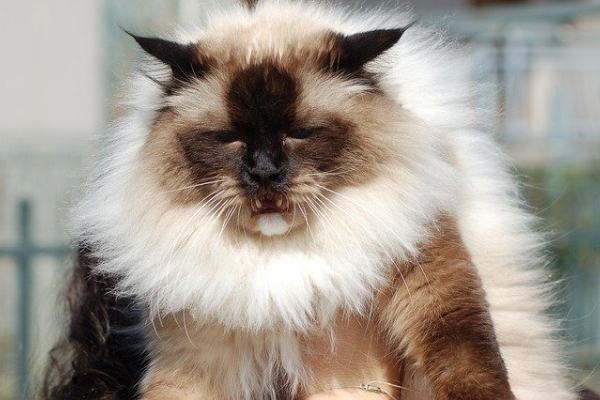
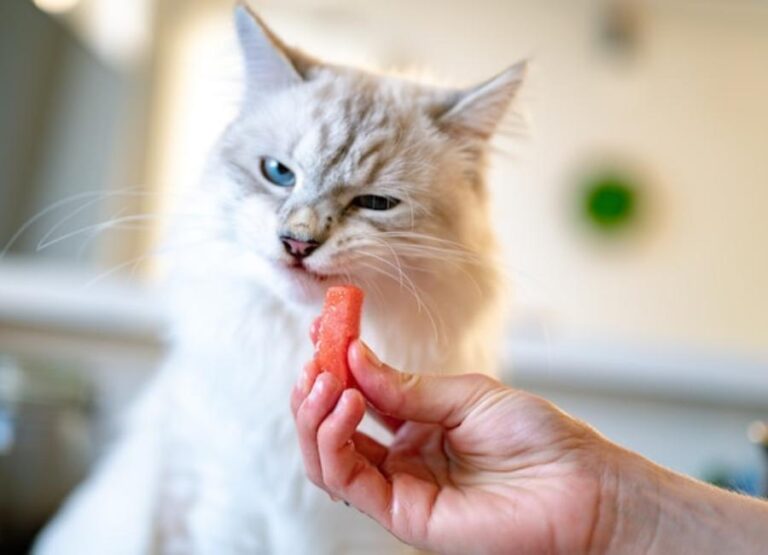
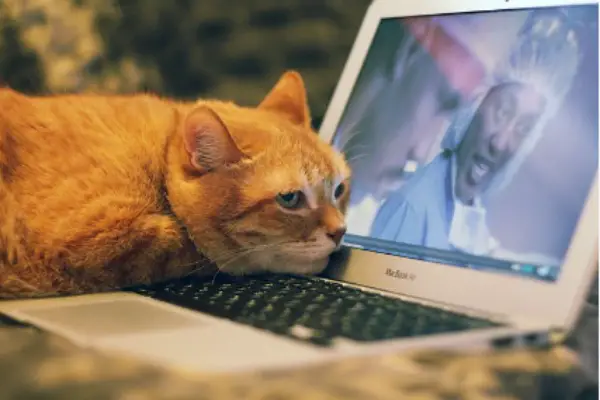
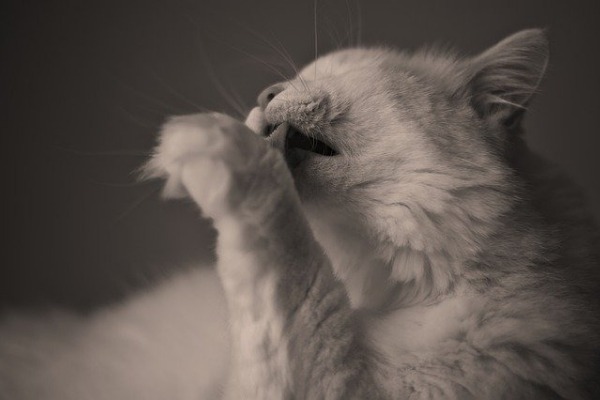
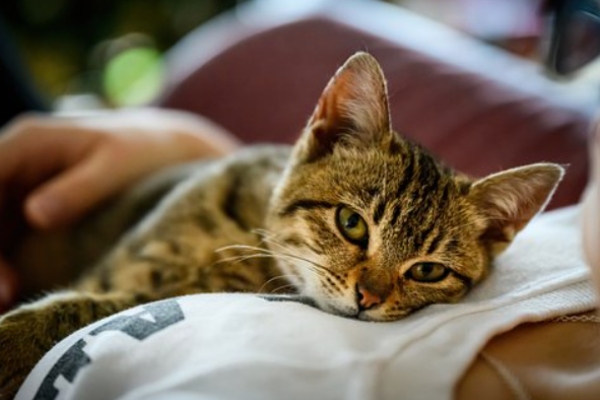
![Why Does My Cat Smell So Bad [12 Potential Reasons] Why Does My Cat Smell So Bad](https://petcreeks.com/wp-content/uploads/2023/10/cat-3054260_640.jpg)